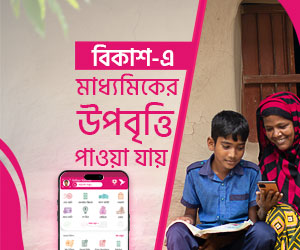Even in the 21st century we could not have ensured the schools and school premises safe for the children let alone making them attractive for them that attributes to the combined failure of the world leaders and education specialists across the globe. One survey of UNICEF that has been released recently exposes a grim picture. It says half of the children are being harassed by their friends across the world. The survey was conducted in August 2018 on the children who faced criticism and rebuking or physical torture. UNICEF says that both in poor and rich countries the negative approach towards children happen almost alike. 150 million children’s education has been hampered around the world because of these physical and mental torture upon the children. The report titled ‘An Everyday Lesson: And Violence in Schools’ released on 6 September 2018 says that the children between thirteen and fifteen years old face torture and violence by their peers and friends. This necessarily makes them believe that schools are unsafe and fearful place for them.
Still many countries exist in the world where physical torture has not been banned totally and 720 million children reside in these countries. A Bangladeshi picture of 2014 for these children shows that 35 percent children faced either criticism or rebuking at least once or more than once a month and physical torture at least once a year. Half of students aged 13 to 15 worldwide – around 150 million experienced peer-to-peer violence in and around school. This is also a UNICEF collected report.
UNICEF Executive Director Henrietta Fore rightly says “Education is the key to building peaceful societies, and yet, for millions of children around the world, school itself is not safe”. The very true fact has been mentioned by the Executive Director. It is not an unknown fact that students face multiple dangers, including fighting, pressure to join gangs, bullying – both in person and online, violent discipline, sexual harassment and armed violence every day around the world and Bangladesh is not getting an escape from these ills. Violence is an unforgettable lesson that no child needs to learn, still they have to face and experience and observe it around them every now and then. It impacts children’s learning in the short term and in the long-term it can lead to depression, anxiety and even suicide. Another harrowing picture gets exposed before us that more than 1 in 3 students aged 13-15 experience bullying, and roughly the same proportion are involved in physical fights and 3 in 10 students in 39 industrialized countries admit to bullying peers. Though girls and boys are equally at risk of bullying, girls are more likely to become victims of psychological forms of bullying and boys are more at risk of physical violence and threats. Violence involving weapons in schools, such as knives and guns, continues to claim lives and an increasingly digital world, bullies are disseminating violent, hurtful and humiliating content with the tap of a key.
We usually see , learn and observe that children don’t want to go to schools even though parents give them pressure to go and the class teachers lodge complaints with the guardians against their wards that they are no attentive in the class. Neither the teachers nor guardians and education authorities want to learn the root causes of children’s not coming to school. The children who are introverts face more mental torture in the classes and school compound because of this reason. One unacceptable word or sentence can exert serious mental pressure on the young minds of these learners that none tries to fathom. Some of the children stop coming to school and even decide to commit suicide. We all condemn them without searching for its genuine cause.
We know that Montessori is a method of education that is based on self-directed activity, hands-on learning and collaborative play. Children work in groups and individually to discover and explore knowledge of the world and to develop their maximum potential. Montessori classrooms are beautifully decorated to meet the needs of children in a specific age range that we hardly bother. Experiential learning in this type of classroom helps students to a deeper understanding of language, mathematics, science, music, social interactions and much more. Every material in a Montessori classroom supports an aspect of child development, creating a match between the child’s natural interests and the available activities. Children can learn through their own experience and at their own pace. They can respond at any moment to the natural curiosities that exist in all humans and build a solid foundation for life-long learning. They include student-centered lessons and activities. Traditional classrooms are based on teacher-centered lessons or activities. Students discover information for themselves. Traditional school lessons are often orated to students who listen passively, memorize, and take tests.
We have developed a culture where young kids and their parents remains busy with passing the examinations with good grades orchestrated by the educational institutions or better can be said by our system of education.. To achieve that end, our young kids start preparing their school hours very early in the morning without completing their natural sleeping hours. Start schools through rigorous and pleasure-denied routine and environment. Children have no respite from it, no playground and playing opportunities for and even no TV watching time as they come from school with a heavy bundle of home works, again go to coaching centers or teachers house turned coaching centers. Getting back from there, again either house tutors or parents’ own guided teaching continues till they go to bed. In spite of these pressures, many guardians continue complaining that their children are not reading at all, their quite inattentive in their studies. All these prove nothing but mental torture on the young kids and depriving them of their usual rights to grow up in a normal environment. This environment does not teach them how to grow up gaining humanistic quality, rather selfish or something more than that.
Our educational institutions should ensure to establish such a situation where learners will enjoy a free and congenial atmosphere for blooming their latent talents and teachers along with the authorities concerned should have acquaintance with it. The objective of education is to develop a complete human being through learners’ physical, mental, psychological, social and spiritual development. We believe only prescribed textbooks cannot promise and ensure arousing the creativity and overall development of the learners. They must participate in games, sports, club activities and institutions must arrange such activities in the yearly calendar. When these activities will be arranged in the educational institutions, students will learn empathy, sympathy and practical knowledge necessary in their practical life and keep themselves away from bullying, criticizing, and quarrelling with their classmates.
Whatever problem a teacher faces at home, she must start smiling as soon as steps into the classroom or school compound. She must have the ability to adjust herself with the changed situation. Young leaders must be greeted with a broader smile that tends to make them both physically and mentally ready to join the activities’ of the class. She must expose that she is really pleased and joyful being with the learners that must correspond to her body language as well. Gloomy face and frowning eye should be foreign to her nature. Interesting story telling may bring a joyful situation in the classroom. She must laugh and forget the ills happening behind her and let the students forget their sad experiences and small ills. Thus the learners will gradually be ready to receive the class and start liking and loving the school compound and classroom. Subsequently, they will come to school running leaving everything behind. All stalk holders’ joint contribution can ensure such a congenial atmosphere for children and the new government of our country and education authorities must steer this effort.
writer: Education specialist in BRAC Education Program and formerly taught in Cadet Colleges and Rjauk College




